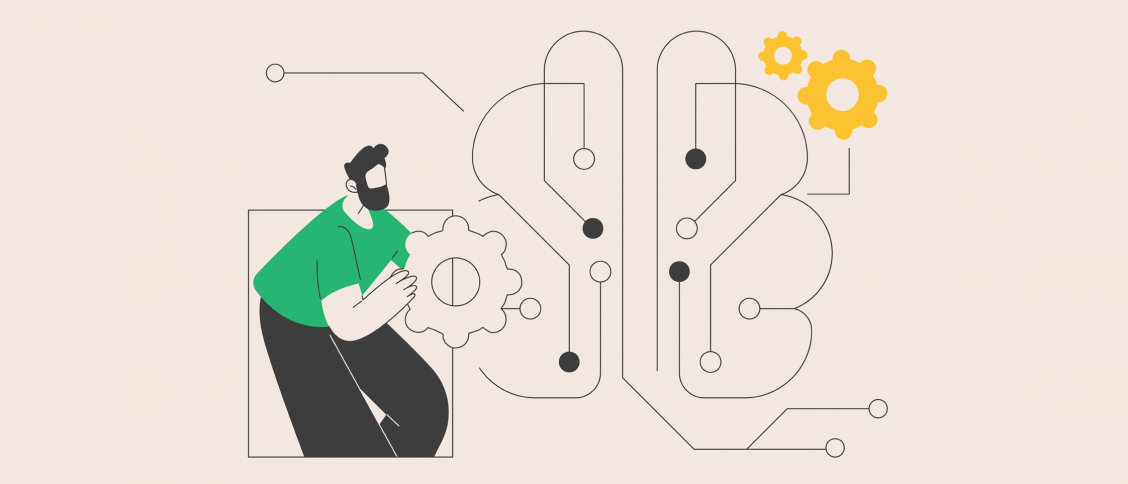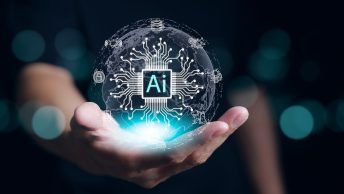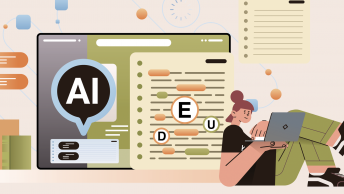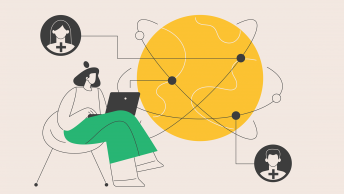As the era of Artificial General Intelligence (AGI) is coming closer each day, the global economy and work environments stand at the time of a transformation that will bring opportunities, challenges and of course problems to face. Three fundamental changes will characterize the time of AGI:
1. automation of processes,
2. a shift in job landscapes,
3. as a result, the imperative for adaptation by governments, individuals, and regulatory frameworks.
There is a strong need for education and regulations in the upcoming change. The issue is that we are using the processes we applied for other topics. Still, the reality is that the development of AI is much faster than any other phenomenon/technology we faced before. As a result, we are left behind with conclusions and actions that can help regulate and, above all, predict the consequences for us as a species. So, in conclusion, there is an urgent need to speed up the tempo of those discussions, which will lead to specific regulations protecting what we have created as a species and steer AI development more into helping us in our future endevours.
Automatization:
One of the features of AGI is its potential to automate a wide array of tasks that were once solely done by human workers. From routine and repetitive activities to complex decision-making processes, AGI will revolutionize industries by significantly reducing the need for human labour in specific roles. While this shift towards automation presents efficiency gains, it also raises questions about the fate of jobs that may become redundant in the face of technological advancements.
With machines taking over routine tasks, human workers can focus on more strategic, creative, and emotionally intelligent endeavours. This transition will be attached to the value change attributed to various skill sets. To conclude the need for human engagement and activity will be shifted from redundant tasks more into creative area.
In the era of AGI, we need to focus more on WHY and WHAT, less on HOW.
Shift of Jobs:
The impact of AGI on the job market will be big. Traditional roles may face obsolescence, but new opportunities and roles will emerge, demanding skills that align with the evolving needs of a technologically advanced society. Industries that apply and use the power of AGI in their processes will experience a reconfiguration of their workforce, with roles requiring creativity, empathy, and critical thinking gaining importance over routine tasks.
Moreover, the shift in job landscapes will force continuous learning and upskilling for individuals seeking to remain relevant in the job market. Adaptability and a willingness to embrace new technologies will be the key to career sustainability in the rapidly evolving employment ecosystem. More about which industries will strive and which I think will disappear, you will find at the end of this article.
Adaptation:
As AGI enter the global economy, governments, businesses, and individuals need to adapt to a new reality. It won’t be a matter of choice. Never in history has the famous Karol Darwin quote been more vivid than it is today:
“It is not the strongest of the species that survive, nor the most intelligent, but the one most responsive to change”
Governments should be tasked with crafting regulations that strike a delicate balance between fostering innovation and our safety. Ensuring a transition for displaced workers and implementing measures to address the social and economic implications of AGI will be critical components of successful adaptation strategies.
On an individual level, the workforce will need to embrace a mindset of lifelong learning and agility. The ability to pivot skill sets. Additionally, businesses must foster cultures that promote innovation, empathy and collaboration between humans to use the full potential of AGI and drive sustainable economic growth.
The Effects of AGI:
In this chapter, let’s focus on the various effects that the rise in AGI will have on productivity, innovation, problem-solving, production costs, education, labour dynamics, and industry centralization.
Productivity Boost: The Age of Efficiency
With AGI, productivity will experience an unprecedented boost. Machines equipped with AGI capabilities will perform tasks faster, more accurately, and tirelessly, leading to an exponential increase in efficiency across industries. Repetitive and labour-intensive jobs that were once the domain of humans will be executed by robots, causing a shift for human resources to be needed for more strategic, creative, and complex activities/jobs.
Innovation Surge with AGI as the Catalyst
The arrival of AGI will be a new era of innovation. Given AGI’s ability to process information at an unprecedented speed, the pace of technological advancements and breakthroughs is expected to rise exponentially. AGI’s capacity for rapid data analysis and pattern recognition will drive innovation in healthcare and finance to manufacturing and beyond, suggesting the way for previously unimaginable solutions to global challenges. We all know that the world we live in faces severe threats and challenges like global warming, wars, and social and wealth inequality, misinformation, to name a few. There is a potential that AGI will put us on the road to finding the answers to those problems.
Problem-Solving on a Global Scale
Connected to the innovation – The AGI revolution will extend to problem-solving on a global scale. Complex problems, whether in healthcare, climate change, or geopolitical issues, will be approached with the analytical ability of AGI. The ability to process vast amounts of data in real-time will empower decision-makers to devise effective solutions to intricate problems, potentially reshaping the world’s approach to longstanding issues.
Drastic Reduction in Production Costs: The Economics of AGI
The integration of AGI into production processes will reduce production costs. Automation will replace human labour in various industries, resulting in increased efficiency and lower operational expenses. This cost reduction is expected to pave the way for a surge in production across sectors, potentially reshaping the economic landscape.
Education Revolution: Preparing for the Unimaginable
AGI will revolutionize the education system, preparing the next generation for a world where human-machine collaboration is the norm, not sci-fi stories. The way we teach our kids will evolve to equip them with the skills needed to thrive in a new environment where AI plays a pivotal role in various aspects of life and work.
Labour Cost Challenges: Unemployment
While the increase in efficiency and productivity is for sure a positive effect, the automation of jobs may lead to significant unemployment challenges. Governments and societies will need to address the potential job displacement by implementing measures such as basic income guarantees or retraining programs. Balancing the benefits of AGI with social responsibility will be crucial in addressing its effects on employment.
Know-How Shift: Rethinking Experience
The traditional advantage of experienced employees may be challenged in the age of AGI. As machines take over routine tasks and even complex decision-making processes, the value of experience might be lower with time. Organizations will need to reevaluate the criteria for hiring and promoting employees, considering a blend of human qualities that complement the strengths of AGI.
Centralizing Industries: The Globalization Effect
The rise of AGI is likely to accelerate globalization further, leading to the centralization of industries. Larger entities with AGI capabilities may dominate markets, replicating a “Supermarket effect” where smaller players struggle to compete. The concentration of power in the hands of a few global players could reshape the economic landscape, necessitating a careful examination of regulatory frameworks to ensure fair competition.
The Era of me
As the world enters the era of Artificial General Intelligence (AGI), a notable shift towards on-demand services becomes prominent. This chapter describes the impacts of the on-demand era on how we consume, live, and experience the world around us. It will be further described in the next article of this series, Wellbeing in the era of AGI. Given the changes I described above that AGI will significantly increase the speed of production (especially of virtual products and creations like films, games etc.), it can be assumed that in the AGI era we will be able to order products perfectly tailored to our requirements. One can imagine that in a few years, we will order a movie that AGI will produce based on our profile and expectations. As for the material space – lowering production costs and increasing speed will also make it possible for us to order physical items/products adapted specifically to us and our expectations. This will make the era of AGI a period with a strong focus on the individual. There will be more personalized products than ever before in history. Let’s take a look at the elements that will lead to this.
Faster Content Production: On-Demand Scaling Up
With AGI, the production of content and services will become significantly faster. This speed will catalyze the rise of on-demand services, allowing us to access what we need immediately. Whether it’s entertainment, information, or goods, the on-demand era will scale up, reshaping how we fulfill our needs.
Personalized Living: The “Me” Oriented Lifestyle
The on-demand era will usher in a more personalized way of living centered around individual preferences. From entertainment choices to daily routines, everything will become more “me”-oriented. AGI’s ability to understand and analyze individual preferences will contribute to tailoring experiences that align with personal tastes, leading to a more customized and (hopefully) enjoyable lifestyle.
Centric-Oriented Individuality
In the on-demand era, individuality takes centre stage. This shift towards a centric-oriented/individual approach means that products, services, and experiences will be crafted to suit each person’s unique preferences. The age of mass production will make way for an era of customization, where personalization is not just a luxury but an integral part of everyday life. When I’m writing this the movies like Blade Runner or the game Cyber Punk ring true to me, showing the future to be diverse and colourful. Full of individualities.
On-Demand Manufacturing:
The on-demand era extends beyond services to manufacturing, offering a glimpse into a world where everything is made to order. AGI-driven on-demand manufacturing ensures that products are tailored 100% according to individual expectations. Whether it’s clothing, gadgets, or household items, the ability to order precisely what one desires will redefine consumer experiences. When in the previous point we describe the variety here time is a key factor. All will be accessible much faster then it is right now.
Crafting Experiences: The Rise of Customization
With AGI’s ability to understand individual preferences, the on-demand era will be characterized by a surge in customized experiences. From virtual reality entertainment to personalized learning modules, the world will witness a shift towards tailoring experiences that resonate with the unique needs and desires of each individual. As we navigate the on-demand era, the fusion of AGI and personalized living promises a future where convenience meets individuality. This transformative shift has the potential to redefine our daily interactions, making every aspect of life a tailored and fulfilling experience. However, with such advancements, considerations around privacy, ethical use of personal data, and the balance between convenience and security will become critical factors in shaping this on-demand world.
The post-AGI Landscape: Winners and Losers of the shift.
As the era of Artificial General Intelligence (AGI) unfolds, certain industries will emerge, while others may face challenges. In this chapter, I will explore the winners and potential losers in the age of AGI.
Industry winners:
Robotics & Automation:
Industries focused on robotics and automation will thrive in the age of AGI. With machines becoming increasingly intelligent, the demand for automated systems in manufacturing, logistics, and other sectors will advance quickly.
Semiconductors and Electronics:
Companies at the forefront of semiconductor technology, such as Apple, Nvidia, and Microsoft, stand to gain significantly. AGI’s capabilities rely on advanced hardware, and those leading in semiconductor innovation will play a crucial role in shaping the AGI landscape.
Sustainable Tech:
As AGI reshapes industries, focusing on sustainable technology becomes pivotal for our well-being. Companies working on environmentally friendly solutions, renewable energy, and eco-conscious practices will likely see increased relevance and demand.
Human-Centric Industries:
Sectors that require a human touch, such as hospitality and care, will remain crucial. The empathy, understanding, and emotional intelligence that humans bring to these roles cannot be easily replicated by machines, ensuring the resilience and relevance of these industries.
Materials, Water, Food:
Industries addressing fundamental human needs, like providing materials, water, and food, will continue to thrive. AGI may enhance efficiency in these sectors, leading to innovations in sustainable agriculture, water management, and material production.
AI Stimulants:
In the early stages of AGI, individuals and organizations capable of improving and feeding data into AI systems will be crucial. Those who can enhance AGI’s capabilities through strategic insights and data refinement will find themselves in a valuable position.
Industry dinosaurs:
Healthcare (Doctors):
While AGI can assist in diagnostics and treatment planning, the human element in healthcare remains irreplaceable, especially in complex decision-making and patient care. However, the role of doctors may evolve, requiring a fusion of medical expertise with AI support. Already, AI has great results in diagnosing problems, so it will only excel in the future in this area.
Education (Teachers): AGI may reshape traditional teaching methods. We all know that education is one of the areas where there have been no significant changes over decades, and we need disruption in this area. However, the human connection, mentorship, and emotional guidance teachers provide may remain irreplaceable, especially in creativity and critical thinking.
Programmers/Content Creators: As AGI advances, some routine programming and content creation tasks may become automated. However, human creativity, innovation, and the ability to imbue creations with a personal touch will likely keep programmers and content creators relevant. Already, there are several startups like Magic AI working to create a stand-alone programmer unit. It’s a matter of time before the technology is ready to develop complex software, and, most of all, the design of it serves a purpose.
Media – AI Centered: Industries which rely on human creativity in media production may face major disruption. Virtual content will be easily produced by AI, which may affect the whole film and game industry. Already, we observe change with more companies using AI, decreasing costs and closing production studios. Sora, Midjourney and other services are already affecting the media. So it’s pretty sure we will see more of such shifts in the future especially when AGI occurs.
Entertainment – On-Demand Only
Traditional entertainment models may need to adapt to the on-demand era. While some roles might change, the demand for human-centric creativity, storytelling, and performance will persist.
Jobs Requiring Creativity (?)
As a creative person I hope it won’t happen. I believe that this is the key aspect of our existence – being creative and problem-solving. The thesis that all jobs requiring creativity will become obsolete is nuanced. While certain elements may be automated, the essence of human creativity, rooted in experience and personal touch, will likely persist. As I said at the beginning of this article it will shift from the act of creation (HOW) more into the creative decision process (WHY and WHAT).
Summary
To sum up, we are facing huge changes and disruptions in the world economy and our work model. We need to be prepared for those in the upcoming years and understand the processes so we can prepare ourselves for the changes I described above.We need to educate ourselves and the people around us to speed up discussions and regulations in this fast-paced new world. In the next article, I will cover our well-being in the age of AGI. Thank you for reading.




